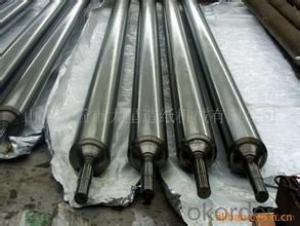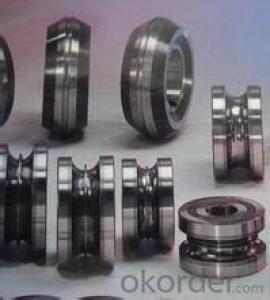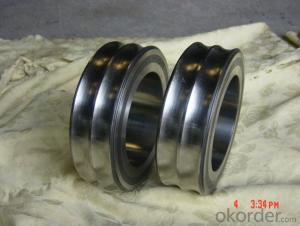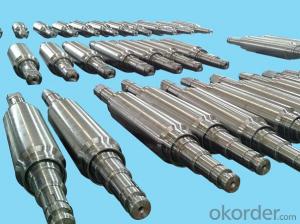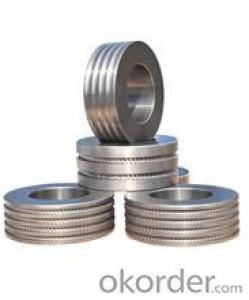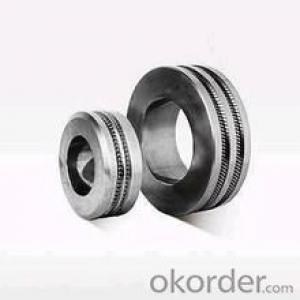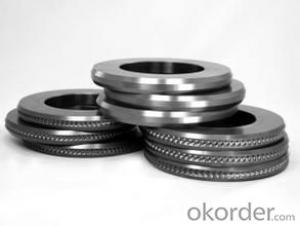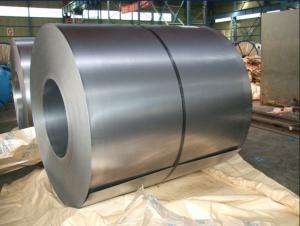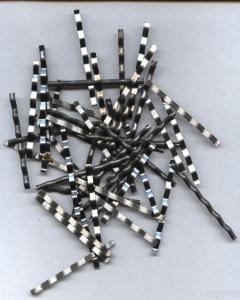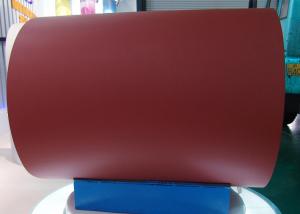Tungsten Carbide Ring roll cemented rolling mill rolls
- Loading Port:
- Tianjin
- Payment Terms:
- TT OR LC
- Min Order Qty:
- 1000 PCS
- Supply Capability:
- 10000 PCS/month
OKorder Service Pledge
OKorder Financial Service
You Might Also Like
Quick Details
| Place of Origin: | Brand Name: | Model Number: | JX-R | ||
| Application: | Heading the Punching | Material: | Steel,100% pure raw material | Dimensions: | 145-380mm |
| Name: | Tungsten carbide ring roll cemented rolling mill rolls | Grade: | YG6X, YG8,YG8.2,YG8L,YG15,YG20,YG20C | Outer diameter: | 120-450mm |
| Inner diameter: | 60-350mm | Height: | 30-150mm | Usage: | drawing steel |
| Technique: | HIP sintered | Payment terms: | T/T W/C Paypal... | Service: | customized available |
Packaging & Delivery
| Packaging Detail: | in carton wraped by waterproof paper; or based on customers' requirements |
| Delivery Detail: | 1month once confirmed order |
Specifications
Tungsten carbide ring roll cemented rolling mill rolls:
1.100% raw material
2.sintered in HIP Furnace
3.sizes&types availabl
Tungsten carbide ring roll cemented rolling mill rolls :
![]() Specifications:
Specifications:
1,Sintered in HIP Furnace
2,ISO9001:2008 Certificate
3,Material in Fine Grain Size
4,Direct sale from our own factory
Material:
Cemented carbide.
1.D:outer diameter(120-450)mm
2.d: inner diamenter(60-350)mm
3.H: height(30-150)mm are availble
your drawings are pretty welcomed.
Package:
Wooden box. The package of carbide roller which from Zhuzhou tungsten carbide base are available based on customers' requirements.
Using:
For drawing steel and nonferrous wires or bars or tubes,tools or wear parts etc.
Grades as following :
YG6,YG6X,YG8,YG8.2,YG8L,YG15,YG20,YG20C,YG20D etc
- Q: What is the process of manufacturing steel products?
- The process of manufacturing steel products involves several steps. It typically begins with the extraction of iron ore, which is then refined and processed to remove impurities. The refined iron ore is then melted in a blast furnace, along with other materials such as limestone and coke, to produce molten iron. This molten iron is further processed in a basic oxygen furnace or an electric arc furnace to remove impurities and adjust its composition. The resulting molten steel is then cast into various shapes through processes like continuous casting or ingot casting. The cast steel is then further processed through rolling, forging, or other forming methods to shape it into the desired final product. Finally, the steel product undergoes heat treatment, surface treatment, and quality control measures to ensure its strength, durability, and desired properties.
- Q: What are the properties of stainless steel that make it corrosion-resistant?
- Stainless steel is corrosion-resistant due to its high levels of chromium content, which forms a protective layer of chromium oxide on its surface. This layer is extremely thin but dense, preventing oxygen and moisture from reaching the underlying metal. Additionally, stainless steel contains other alloying elements such as nickel and molybdenum, which further enhance its resistance to corrosion in various environments and make it highly durable.
- Q: How are steel profiles used in the construction of high-rise towers?
- Steel profiles are used in the construction of high-rise towers to provide structural support and stability. These profiles are often used as beams, columns, and braces to carry the weight of the building and resist external forces such as wind and earthquakes. The high strength-to-weight ratio of steel makes it an ideal material for constructing tall buildings, as it allows for greater design flexibility and reduces the overall weight of the structure. Additionally, steel profiles can be fabricated off-site, making construction more efficient and reducing on-site labor.
- Q: How are steel products used in the energy sector?
- Steel products are extensively used in the energy sector for various purposes. They are used in the construction of power plants, pipelines, transmission towers, and other infrastructure. Steel is also used in the manufacturing of wind turbines, solar panels, and nuclear reactors. Its strength, durability, and resistance to extreme conditions make it an ideal material for supporting and protecting energy-generating equipment and structures.
- Q: How do steel products contribute to the retail and commercial sector?
- Steel products contribute to the retail and commercial sector in various ways. Firstly, they are widely used in the construction industry for building structures, such as shopping malls, office buildings, and warehouses. Steel's strength, durability, and versatility make it a preferred choice for constructing large commercial spaces. Additionally, steel products are used to create shelving units, display racks, and storage systems in retail stores. These products provide a sturdy and reliable solution for organizing and displaying merchandise, ensuring efficient use of space and enhancing the overall shopping experience for customers. Moreover, steel is commonly used in the manufacturing of commercial equipment and fixtures, including cash registers, shopping carts, and display stands. These steel products offer durability and stability, ensuring the smooth operation of retail and commercial businesses. Furthermore, steel plays a vital role in the transportation and logistics sector. Steel containers, shipping pallets, and storage racks are essential in facilitating the movement and storage of goods in warehouses, distribution centers, and retail outlets. Overall, steel products are crucial for the retail and commercial sector as they provide the necessary infrastructure, equipment, and fixtures required for smooth and efficient operations, contributing to the growth and success of businesses in this sector.
- Q: What are the uses of steel wire mesh in filtration?
- Steel wire mesh is commonly used in filtration due to its durability and ability to withstand high pressure and temperature conditions. It is used to separate solids from liquids or gases in various industries such as oil and gas, water treatment, food processing, and pharmaceuticals. The mesh provides a strong and reliable barrier, allowing for efficient filtration and removal of impurities, particles, or contaminants. Additionally, steel wire mesh can be easily cleaned and maintained, making it a cost-effective and practical choice for filtration applications.
- Q: What are the applications of steel in the marine industry?
- Steel is widely used in the marine industry due to its exceptional strength, durability, and corrosion resistance properties. It is employed in the construction of ship hulls, decks, and superstructures, providing structural integrity and ensuring the vessel's longevity in harsh marine environments. Additionally, steel is utilized in the fabrication of marine equipment, such as propellers, shafts, and rudders, contributing to efficient propulsion systems and smooth navigation. Its applications in the marine industry are crucial for ensuring the safety, reliability, and performance of various maritime vessels and structures.
- Q: What are the common types of steel products used in the railway industry?
- Common types of steel products used in the railway industry include rails, sleepers, wheels, axles, and various structural components such as beams and columns.
- Q: How do steel products contribute to the construction of theme-based culinary experience centers?
- Steel products contribute to the construction of theme-based culinary experience centers by providing structural support, durability, and design flexibility. Steel beams and columns are used to create the framework of the building, ensuring its stability and safety. Steel roofing and cladding materials offer protection against harsh weather conditions, while steel doors and windows provide security and aesthetic appeal. Additionally, steel allows for innovative architectural designs, enabling the creation of unique and eye-catching culinary spaces that enhance the overall theme and experience for visitors.
- Q: What are the different types of steel sheets and their uses in the construction of prefabricated buildings?
- There are several types of steel sheets used in the construction of prefabricated buildings. One common type is hot-rolled steel sheets, which are known for their strength and durability. These sheets are often used in the construction of structural components such as beams, columns, and trusses. Another type is cold-rolled steel sheets, which are typically thinner and more precise in dimension. They are commonly used for cladding and roofing purposes. Galvanized steel sheets are coated with a layer of zinc to enhance their resistance to corrosion, making them suitable for outdoor applications. Lastly, stainless steel sheets are highly resistant to rust and corrosion, making them ideal for areas with high moisture or chemical exposure. These sheets are often used in kitchens, bathrooms, and other areas that require a hygienic and durable surface. Overall, the different types of steel sheets serve various purposes in the construction of prefabricated buildings, ensuring structural integrity, durability, and aesthetics.
Send your message to us
Tungsten Carbide Ring roll cemented rolling mill rolls
- Loading Port:
- Tianjin
- Payment Terms:
- TT OR LC
- Min Order Qty:
- 1000 PCS
- Supply Capability:
- 10000 PCS/month
OKorder Service Pledge
OKorder Financial Service
Similar products
Hot products
Hot Searches
Related keywords
